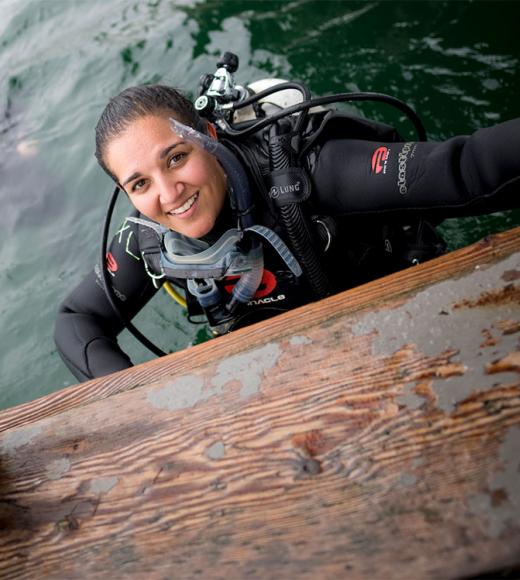
The School of Earth and Atmospheric Sciences Presents Dr. Alyssa J. Griffin, UC Davis Bodega Marine Laboratory
Marine Sediments in a Changing Climate: Unlocking the Past and Preparing for the Future
The various spheres of the Earth system interact through complex physical, biological, and chemical processes that operate over vast spatial and temporal scales. Few aspects of the Earth system are immune to changes resulting from anthropogenic carbon emissions which continue to profoundly shape the nature and habitability of our planet.
Marine sediments are the ultimate sink of anthropogenic carbon emissions on geologic timescales and a fundamental control of atmospheric CO2, ocean chemistry, and in turn, Earth’s climate. Many inferences about changes in global climate and seawater chemistry over Earth’s history rely on interpretations of the geochemical signatures contained in marine sediments. Marine sediments are also inextricably linked to present-day marine resources and central to several proposed climate mitigation strategies. Understanding biogeochemical processes related to marine sediments can improve our ability to interpret Earth’s climate through time, respond to present climatic changes, and effectively prepare for the future consequences of climate change.
In this talk, I will discuss my ongoing research at the nexus of marine sediment biogeochemistry and Earth’s changing climate. I will outline my research in the context of unresolved and emerging questions related to carbon cycling in marine sediments across broad spatiotemporal scales. Additionally, I will highlight how studying marine sediments contributes to building coastal resiliency, co-developing mutually beneficial academic partnerships, and elevating the role of the earth science community in addressing the unfolding climate crisis.